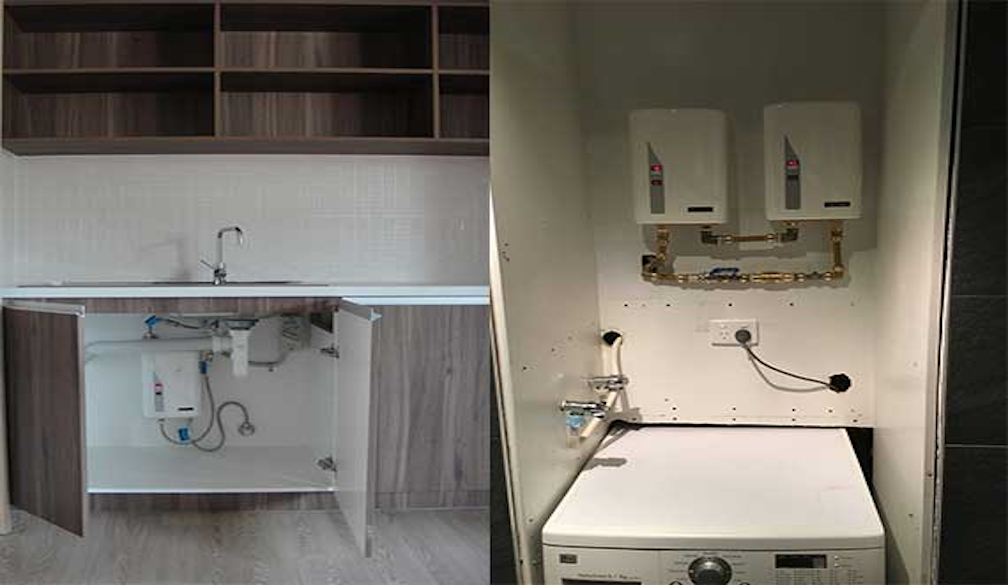Essential Maintenance Tips for Prolonging the Life of Your Water Heater

A water heater is a vital appliance in any home, providing the hot water needed for daily activities like showering, cooking, and cleaning. To ensure your water heater operates efficiently and lasts as long as possible, regular maintenance is essential. Here are some practical tips to help you extend the life of your water heater and avoid unexpected breakdowns.
- Regularly Check and Adjust the Temperature
One of the simplest ways to maintain your water heater is to regularly check and adjust the temperature setting. The recommended temperature for most water heaters is around 60°C (140°F). Setting the temperature too high can cause excessive energy consumption and increase the risk of scalding. Conversely, setting it too low can result in insufficient hot water. Regularly check the thermostat and adjust it as needed to ensure optimal performance.
- Flush the Tank Annually
Over time, sediment and mineral deposits can accumulate at the bottom of your water heater’s tank, especially if you have hard water. This sediment buildup can reduce the heater's efficiency and lead to potential damage. To prevent this, it’s important to flush the tank annually. Turn off the power or gas supply, connect a hose to the tank’s drain valve, and allow the water to flow out until it runs clear. This process helps remove sediment and keeps your water heater functioning efficiently.
- Inspect the Anode Rod
The anode rod in your water heater helps prevent corrosion inside the tank. It attracts corrosive elements and sacrifices itself to protect the tank from rust. Over time, the anode rod will degrade and need replacement. Inspect the anode rod every 1-2 years and replace it if it’s significantly corroded or worn out. A well-maintained anode rod can prolong the life of your water heater and prevent costly repairs.
- Check for Leaks
Regularly inspect your water heater for any signs of leaks. Leaks can occur from the tank itself, the connections, or the valves. Small leaks can lead to significant water damage and indicate a problem with your water heater. If you notice any leaks, address them promptly by tightening connections or replacing faulty components. In some cases, professional repair or replacement may be necessary.
- Insulate the Tank
Insulating your water heater tank can help improve energy efficiency and reduce heat loss. This is especially important for older models that may not have built-in insulation. Use a water heater insulation blanket to wrap around the tank, leaving the top and bottom open to avoid overheating. Insulation helps maintain the water temperature and reduces the workload on your heater, leading to lower energy bills.
- Test the Pressure Relief Valve
The pressure relief valve is a critical safety feature of your water heater. It prevents excessive pressure buildup inside the tank, which could cause it to burst. To ensure the valve is functioning correctly, test it annually. Lift the valve’s lever to release some water and allow it to drain into a bucket. If the valve doesn’t open or doesn’t close properly, it may need to be replaced by a professional.
- Clean the Area Around the Water Heater
Keeping the area around your water heater clean and free of clutter is important for proper ventilation and safety. Ensure that the area is well-ventilated and that there are no obstructions around the heater. This helps prevent overheating and allows for proper air circulation. Regularly remove dust, debris, and other items that could pose a fire hazard or impede the heater’s operation.
- Schedule Professional Maintenance
While there are several maintenance tasks you can handle yourself, it’s also a good idea to schedule professional inspections and servicing for your water heater. A qualified technician can perform more thorough checks, identify potential issues, and provide expert advice on keeping your water heater in top condition. Regular professional maintenance helps ensure that your water heater operates efficiently and has a longer lifespan.
Conclusion
Proper maintenance is key to prolonging the life of your water heater and ensuring it operates efficiently. By regularly checking and adjusting the temperature, flushing the tank, inspecting the anode rod, and addressing any leaks, you can keep your water heater in good condition. Additionally, insulating the tank, testing the pressure relief valve, and keeping the area around the heater clean are important for optimal performance. Scheduling professional maintenance further ensures that your water heater remains reliable and efficient for years to come.










